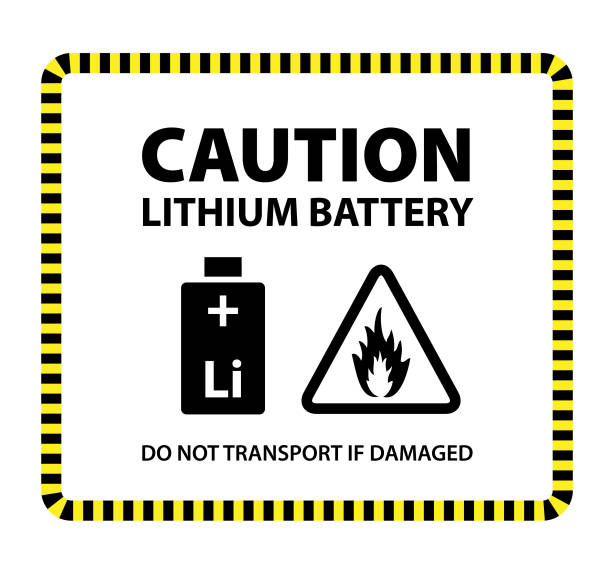Proper handling and maintenance of battery packs are crucial to ensure safety, performance, and longevity. Here are essential safety tips to keep in mind:
Battery use
When handling battery packs, always use proper protective equipment, including safety goggles, gloves, and protective clothing, to protect against potential leaks or spills. Before handling, inspect the battery packs for any signs of damage, leakage, or corrosion. Avoid handling damaged batteries without proper precautions and never drop, puncture, or apply excessive pressure to battery packs as physical damage can lead to leaks, fires, or explosions. Keep batteries away from metal objects to prevent short circuits and store them in non-conductive containers. Always use manufacturer-approved chargers and equipment to avoid overheating, fires, or explosions caused by incompatible devices.
Battery charging

For charging, follow the manufacturer’s guidelines for charging cycles and rates, as overcharging or undercharging can damage the battery and pose safety risks. Never leave batteries charging unattended and use chargers with automatic shutoff features to prevent overcharging. Charge batteries within the specified temperature range to avoid overheating, as extreme temperatures can affect battery performance and safety.
Battery storage
Environmental control: Storing battery packs correctly is equally important. Store them in a cool, dry place, away from direct sunlight and heat sources, with ideal temperatures typically between 20-25°C (68-77°F). Avoid humid environments to prevent moisture buildup, which can lead to corrosion and reduced performance. Use the original packaging or non-conductive containers to organize and label batteries, ensuring proper handling.
Regular maintenance: Maintaining battery packs involves regular inspections for signs of wear, damage, or leakage, and immediate replacement of compromised batteries. Keep battery terminals clean and free from corrosion using a dry cloth or terminal cleaning brush. For battery packs with multiple cells, ensure balanced charging to maintain uniform cell performance and prolong overall battery life.
Disposal of battery packs should follow proper guidelines to avoid environmental hazards. Do not throw batteries in regular trash; instead, participate in battery recycling programs offered by many manufacturers and retailers. Knowing emergency procedures is essential. Keep contact information for emergency services and local poison control centers accessible. In case of a fire, have a Class D fire extinguisher or a bucket of sand nearby, as water should not be used to extinguish battery fires. If skin or eye contact with battery chemicals occurs, rinse immediately with plenty of water and seek medical attention.
Safety is paramount when handling and maintaining battery packs. By following these guidelines, you can ensure the safe and efficient use of your battery systems, protecting both people and property from potential hazards. Always prioritize safety and stay informed about best practices for battery management.

